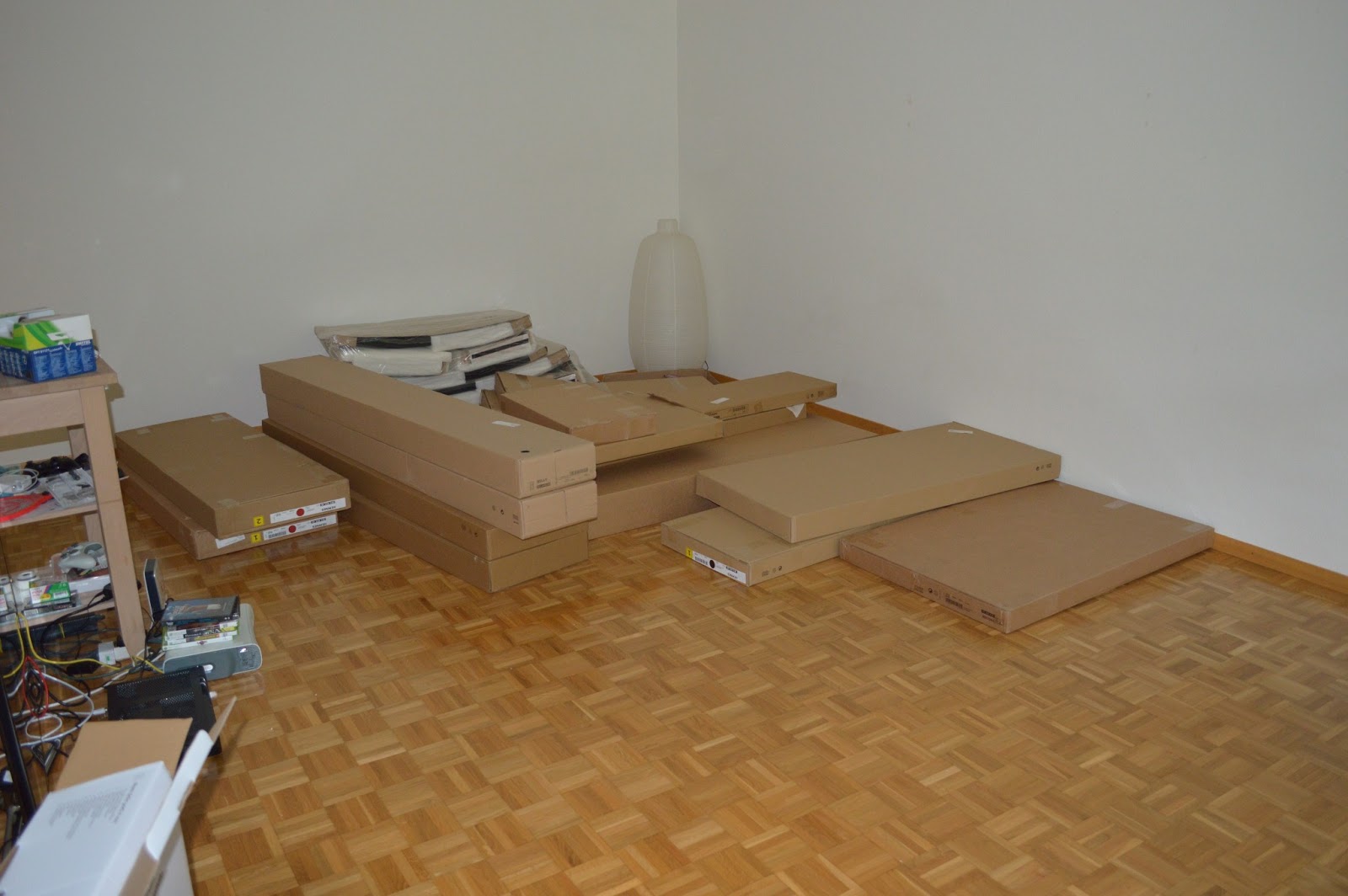I'm officially on break after three months of daily, intensive German classes, and I'm supposed to be studying on my own. Surprisingly, I actually am. I haven't yet tackled the German version of the first Harry Potter (although I have re-read the English version as a refresher, and the German book version is currently mocking me from our kitchen table), but I've been working on my vocabulary with a set of German vocab cards that my parents had in a hidden corner of their house. The cards look as if they date from the 1960s or so, but I'm assuming that the language hasn't changed that much in 50 years - and if it has, it's been the introduction of words such as "der Computer" or "<unknown article> E-Mail." Which are obviously not the words that cause me trouble.
I've taken my father's suggested approach (why are parents always right?) and, every day, I introduce 3 new cards to my "learn/know" pile. I've been pulling the cards at random, so sometimes I already know them ("tanzen" - to dance), and others are of questionable usefulness ("das Pferd" - the horse. Basic, yes, but how often do horses come up in conversation, really?). I make sure that I never pull more than one card a day that I already know. It feels slow, but it's rewarding to see the pile grow and realize that I am actually remembering the words. B often quizzes me when he gets home about what I've learned.
I've also been watching a fair amount of German television now that we have a cable box and tv set up (yes, still on the floor). Since we got back from the US, it's mainly been French Open coverage, so I've been listening to some English interviews with players, French chair umpires shouting "Merci, s'il vous plait" at the crowd in an attempt to get them to stop screaming (and lots and lots of review of the numbers 15, 30, and 40), and tons of German commentators. I've only picked up a few new words ("versuchen" - to try), but I like that it's a lot of repetitive vocabulary, so I can find the words I know (play, to win, won, there is/are, it was, s/he had, quick, also, tomorrow, next week, other, again, to last, several numbers). Watching TV is, of course, very passive - and for that reason I usually try to avoid it - but I appreciate that aspect now. It allows me to repeat phrases or sentences, rolling them around, trying to mimic the pronunciation as well as take as long as necessary to tease apart words and understand what is being said. It's also nice to get used to hearing the language at its normal speed. It no longer seems like a hopeless, random assortment of syllables that people are mocking me with (I totally don't take not understanding a language personally. What kind of crazy person would do that?).
So, how has all this translated into the "real world"? Mixed results, of course. I stopped by a bakery with a friend last week and while she ordered, I grabbed a lemonade from the cooler. Another bakery worker asked me something and I froze, my usual cat-caught-with-paw-in-the-fish-tank look. It was not "Ist das alles?" - which I can understand - although apparently it was the same intended meaning. The bakery worker switched to English and even gave me the price in English. I resisted the urge to pettishly claim that I understand "four francs" and shamefacedly handed over my money without protest. Perhaps she was speaking Swiss German - I still am completely unable to crack this oral language, and rarely even recognize it.
However, I had a small (very small, perhaps) moment of triumph last Friday. I found myself in town and hungry around lunch time, so I went to a food stand outside of Manor. As usual, I hung back until I had decided what I wanted, steeled myself for the likely conversation that would take place, and gotten out my money (half-franc coins are exactly the same size as dimes, and I still haven't cleaned US coins out of my billfold). I stepped up and requested a frühlings-brot, and the woman asked me a question in response. I went into panic mode, felt the whites of my eyes grow, and had time to think "She can't be asking me if it's for here or take-away [a question that has tripped me up a few times at Starbucks], crap, it's been too long, say your "I don't speak German" line." And I opened my mouth to say it, when I realized I understood what she had asked me. She was asking me which type of sandwich I wanted - apparently there were two made with the same type of bread, which I hadn't realized. She had, in fact, said "Gemüse oder Camembert?" and while I had opened my mouth to confess my ignorance, I was able to switch tactics and say "Camembert, bitte!" with an inappropriately large, possibly creepy, smile. I paid for the sandwich and left without further incident. Yes, it was only three words, but it was the first time ever that I experienced an unexpected German question and actually fielded it. VICTORY! My sandwich never tasted better.
Of course, I had originally wanted the vegetable (gemüse) sandwich, not the cheese one. I chose Camembert because I simply latched onto the last word she had said.
Baby steps.
































